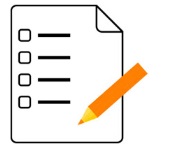On-call scenario 1: Questions
There are four questions that you may find yourself asking a lot when you're on-call, and they all apply in this situation. Here they are:1. Who are you?
Maybe you'll want to ask this less bluntly. Perhaps something like "I'm sorry, I didn't catch your name" or "Are you one of the medical team?" You need to know what authority the person has to change the patient's medication. A junior doctor might need some coaching about how to prescribe a non-formulary drug, for example, or might welcome advice on using the e-prescribing system. If you're speaking to a nurse, then you might need to ask to be referred on to a doctor at some stage. Always find out who you're speaking to and how to get back to them. It's not rude.
Answer: Jason Patel, nurse, ext. 8326.
2. What's the patient's name?
Always take this information and another identifier like an age or hospital number in case you need to look up something about them on a Trust computer system. Also if you end up speaking to a different healthcare professional about this case, you can avoid all ambiguity by clearly identifying the patient.
Answer: Simon Wyatt, hospital no.1902349, age 49 years.
3. Which medicines are they taking?
You'll need a drug history in case of potential interactions, or perhaps you'll identify other issues about this patient's medicines once you know the full story.
Answer: IV ganciclovir 500mg BD. Also prescribed amlodipine, enoxaparin, lansoprazole and morphine..
4. Why are you asking about this?
Again, you may want to phrase this differently: "Can you give me a bit of background about the patient please?" An open question like this should prompt the caller to give you a brief outline of the patient's clinical situation.
Answer: Patient is being treated for cytomegalovirus (CMV) secondary to immunotherapy. He has a PICC in situ with two lumens, one lumen has total parenteral nutrition (TPN) running through it. The ganciclovir has been sent from the pharmacy aseptic unit, and the 500mg dose has been put in a 100mL bag of sodium chloride 0.9%. The patient weighs 100kg.
Now that you have more information about the patient, you tell the nurse that you will check and get back to them.
 Which information sources would you use?
Which information sources would you use?Once you've decided, click Next Page to see some ideas...







